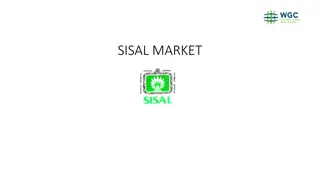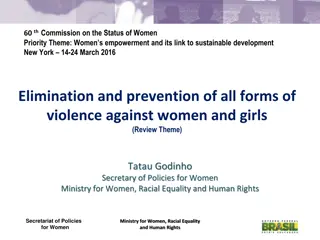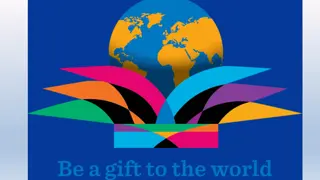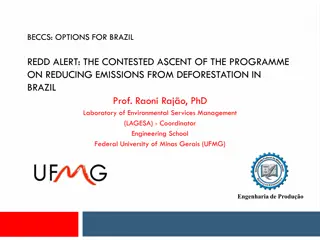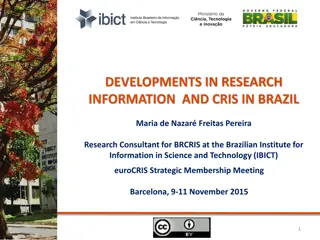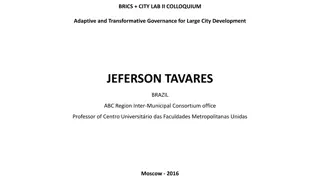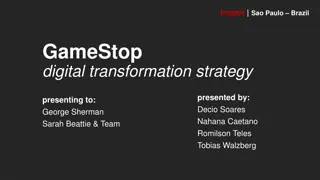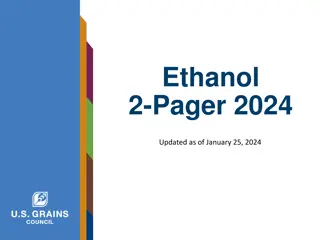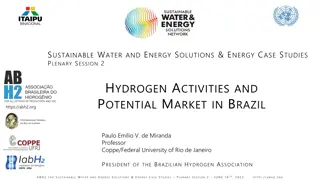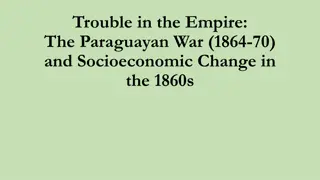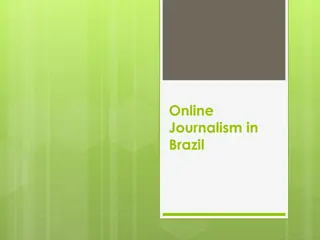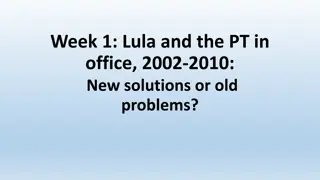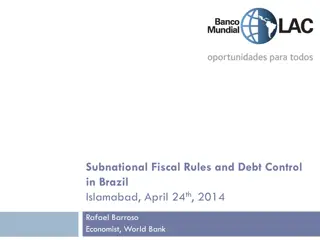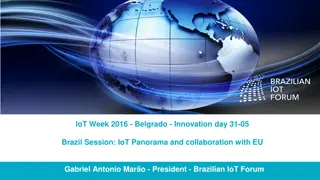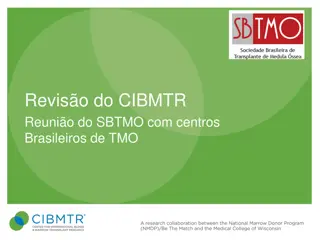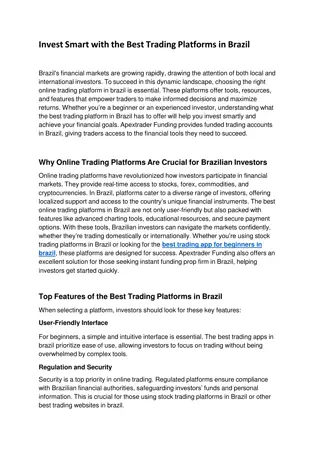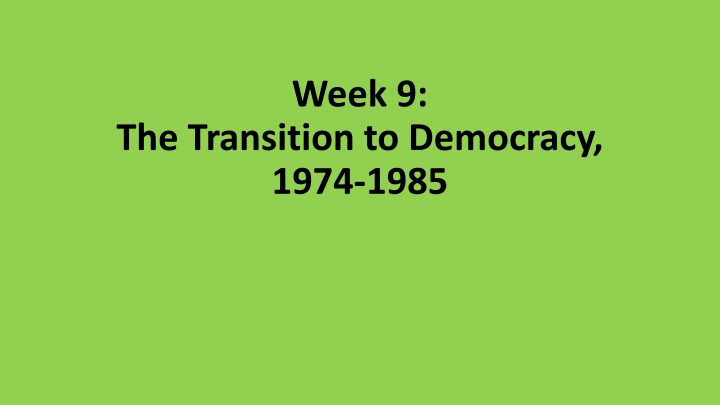
Transition to Democracy in Brazil, 1974-1985: Civil Resistance and Cultural Influence
Explore the transition to democracy in Brazil from 1974 to 1985, focusing on civil society movements, identity politics, and cultural resistance against the military dictatorship. Discover how cultural expressions such as music and film played a role in the resistance efforts during this period.
Download Presentation

Please find below an Image/Link to download the presentation.
The content on the website is provided AS IS for your information and personal use only. It may not be sold, licensed, or shared on other websites without obtaining consent from the author. If you encounter any issues during the download, it is possible that the publisher has removed the file from their server.
You are allowed to download the files provided on this website for personal or commercial use, subject to the condition that they are used lawfully. All files are the property of their respective owners.
The content on the website is provided AS IS for your information and personal use only. It may not be sold, licensed, or shared on other websites without obtaining consent from the author.
E N D
Presentation Transcript
Week 9: The Transition to Democracy, 1974-1985
Themes this week Themes this week Gradual opening (abertura) back to democracy Impetus from within the military: moderates gain upper hand, gradual paving of way for democratic transition BUT: at same time, bottom-up impetus: civil society movements: - Women s movements; Black Movement; indigenous organising; land rights (MST) next week - Liberation Theology (Catholic Church): this week * Identity politics : groups make citizenship demands on basis of particular issues or identities - But: many aims and practices also overlap - E.g. growth of PT often intersects with Liberation Theology movements
Last week Last week Military coup 1964; initially moderates have upper hand 1967 Costa e Silva takes over as president; 1968 AI5 (5th institutional act); start of full-blown military dictatorship Resistance ongoing in various forms armed guerrillas As well as violent suppression of resistance, military also maintains power through control of the MEDIA
Culture as a tool for resistance? Culture as a tool for resistance? Subtle criticism can evade censors (film, music) Media not totally censored, e.g. radical bishop Dom Helder Camara gets 15 mins airtime per week; becomes basis for Liberation Theology Tropicalismo : avant-garde cultural movement plus subtle/ creative lyrics criticising regime Eventual exile of most tropicalismo musicians (Gilberto Gil, Caetano Veloso, and briefly Chico Buarque)
Caetano Veloso, album Caetano Veloso, released 1971 in exile in London
Chico Buaques 1971 album Construo, featuring critical songs about the dictatorship
Other sources of opposition Other sources of opposition General exile of Brazilians on the left from late 60s: opposition thinking evolves in exile Criticism of torture when used against middle class US support for military, but with increasing reservations about human rights violations Bar Association defends political prisoners Catholic Church provides legitimate focal point
Recapping: the economic miracle, 1968 Recapping: the economic miracle, 1968- -74 74 Inflation down from 90% in 1964 to 27% in 1967 1968-1974: 11% growth per year Encouragement of major foreign investment (especially from US) Infrastructure projects: Itaipu Dam, Transamazon Highway
A new economic reality from 1973 A new economic reality from 1973 Earlier economic miracle (1968-74) gives way to Oil crises, 1973, 1979 Initial decision for debt-led growth - disastrous 1981 credit squeeze by US Federal Reserve Brazil back in DEBT 1980s lost decade in Latin America military rule loses economic justification
Abertura Abertura : the military road back to : the military road back to democracy democracy Impetus for democracy from moderates within military ( abertura ) Ernesto Geisel assumes presidency, 1974 New military generation less concerned with Cold War politics Concern with Brazil s legalistic image abroad Government gradually lets go of managed majority in Congress Amnesty law 1979; exiles start returning, but, prevents truth and reconciliation process in Brazil
The role of civil society The role of civil society Role of the Church as umbrella for dissent Civil society movements: women, unions, indigenous, religious, Afro-Brazilian, human rights, gay & lesbian rights, environmental, land reform... Growth of the PT (Partido dos Trabalhadores, Workers Party) through grass-roots and labour organising Failed but influential campaign for direct presidential elections, 1985: support of Church, PMDB, massive public rallies in RJ/ SP
Campaigns for Campaigns for direct elections in direct elections in Brazil, 1984 Brazil, 1984- -5 5
The election of Tancredo The election of Tancredo Neves Neves, 1985 , 1985 2 political parties, both military creations: - PDS (formerly ARENA) pro-government - PMDB (opposition) supports Tancredo One portion of PDS backs Trancredo Military agree to democratic transition Massive excitement: first civilian president since Quadros Death in mysterious circumstances; national mourning Vice-president Jos Sarney (PDS) takes over majority in Congress achieved
Funeral procession for Tancredo Funeral procession for Tancredo
Liberation Theology Theological reaction to poverty and inequality in Latin America (urbanisation, industrialisation ) Intersects with changes in the Church led by the Vatican, but also with Latin American dependency theory and Marxism Formulated by Peruvian bishop, Gustavo Guti rrez, book Teolog a de la Liberaci n (1971) Also influential in Brazil; Chile; El Salvador Brings together social analysis with Christian belief
Context Context Second Vatican Council (Vatican II) 1962: conference of world s cardinals. Aims to address: - Loss of members to PENTECOSTALISM - need for clearer global mission and presence - Advocates a turning out towards the world Conference of Latin American Bishops in Medell n, Colombia (1968): importance of church s work at the base of society Conference of Latin American Bishops in Puebla (Mexico) 1979: preferential option for the poor formulated
Liberation Theology in practice Liberation Theology in practice Bottom-up organizing; respect for and interest in the daily experiences of the poor In Brazil alone, between late 1960s and early 1980s, there were 80,000 to 100,000 Ecclesiastical Base Communities; 1-2M participants Bible study; practical and political messages; literacy Interpretation of social injustice as a sin Concern by God with HUMAN HISTORY and need for social justice on Earth not just in heaven
Dom Dom Helder Helder Camara Camara of Brazil "When I give food to the poor, they call me a saint. When I ask why they are poor, they call me a communist. of Brazil
Leonardo Leonardo Boff Brazil Brazil "One of the worst fundamentalisms is that of neoliberalism Boff of of
Gustavo Gustavo Gutierrez, Peru Gutierrez, Peru "Poverty is not fate, it is a condition; it is not a misfortune, it is an injustice. It is the result of social structures and mental and cultural categories, it is linked to the way in which society has been built..."
Readings Readings Kenneth Serbin, Dom Helder Camara: The Father of the Church of the Poor, in Beattie, ed, The Human Tradition Robin Nagle and Jill Nagle, Claiming the Virgin: The Broken Promise of Liberation Theology in Brazil (1997), Ch 1 Rebecca Abers, Inventing local democracy: grassroots politics in Brazil (2000), Chapter 2, Urban Politics and Neighbourhood Organizing in Brazil.
Questions Questions Why did Brazil move back to democracy by 1985? Who drove the process of opening (abertura)? What was the role of the Church and Liberation Theology? What were the goals of Liberation Theology and how successfully were they implemented in Brazil in the 1970s and 1980s? Did the transition to democracy bring new methods of grassroots political organising, or simply re-package older ones?

![Halal_Chicken_from_Brazil-_Ensuring_Quality_and_Authenticity[1]](/thumb/86918/halal-chicken-from-brazil-ensuring-quality-and-authenticity-1.jpg)
